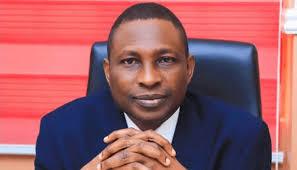The Economic and Financial Crimes Commission (EFCC) in Nigeria is taking a new approach in the fight against corruption by using recovered funds to support national development. Recently, President Bola Tinubu directed the EFCC to allocate N100 billion to boost education and consumer credit in the country. This decision marks a significant shift in how the proceeds of crime are being used to benefit the public.

In an August 4th speech, President Tinubu announced that N50 billion would be allocated to the Nigerian Education Loan Fund (NELFUND) and another N50 billion to the Consumer Credit Corporation. This decision is a direct response to the #EndBadGovernance protests, reflecting the government’s commitment to addressing public concerns and using recovered assets for the greater good.
The funds allocated by the EFCC come from assets recovered over the past year. Between May 2023 and May 2024, the EFCC, led by Chairman Olanipekun Olukoyede, recovered over ₦231 billion in naira. They also secured millions in foreign currencies, including $70 million, £29,000, €208,000, and various amounts in other international currencies like the Indian rupee, Canadian dollar, and Chinese yuan. These recoveries resulted from over 12,000 investigations, leading to more than 5,300 court cases and 3,400 convictions.
By redirecting these funds towards education and consumer finance, the EFCC is not just recovering stolen money but also ensuring it is used to improve the lives of Nigerians. This move highlights a strategic shift in Nigeria’s anti-corruption efforts, aiming to provide tangible benefits to the public.
NELFUND, the Nigerian Education Loan Fund, has already received N50 billion from the EFCC to support student loans. According to Oseyemi Oluwatuyi, NELFUND’s Head of Corporate Communications, this significant funding boost aligns with President Tinubu’s vision to enhance access to education for all Nigerians. Since the launch of its online portal in May 2024, NELFUND has provided loans totaling N2.5 billion to over 22,000 students. This influx of funds will allow NELFUND to continue supporting students across Nigeria, especially those from low-income families who struggle to afford tuition fees.
NELFUND’s Managing Director, Akintunde Sawyerr, emphasized the transformative potential of this initiative, stating, “We are at a point where we can truly make a difference in the lives of Nigerians, ensuring every student has the opportunity to pursue their education, regardless of their background.”
The other half of the N100 billion has been allocated to the Consumer Credit Corporation, which aims to improve access to affordable credit for Nigerians. This initiative is designed to empower citizens to meet their financial needs, whether for personal or business purposes, and to reduce reliance on predatory lenders. By providing a more reliable and transparent source of credit, the corporation aims to stimulate economic growth and support small businesses, contributing to broader economic stability.
The EFCC, under the leadership of Olanipekun Olukoyede, is committed to ensuring that these funds are managed with the highest level of transparency and accountability. Olukoyede has emphasized the importance of oversight to prevent any misuse of the funds, reinforcing the idea that the fight against corruption is not just about punishing wrongdoers but also about using recovered assets to benefit society.
In a recent meeting with NELFUND officials, Olukoyede urged strict monitoring of the funds’ use, stressing that the government’s anti-corruption efforts must be linked to tangible improvements in public welfare. He pointed out that financial hardship and lack of education are key factors driving crime in Nigeria. By investing in education and financial inclusion, the government is addressing these root causes directly.
This innovative use of recovered funds represents a new chapter in Nigeria’s battle against corruption, where the proceeds of crime are transformed into opportunities for growth, education, and economic development. The allocation of N100 billion to support education and consumer credit sets a precedent for how Nigeria can use recovered assets to build a better future for all its citizens. By focusing on transparency and accountability, the government is sending a clear message that the fight against corruption is about more than just recovering stolen money—it’s about using those funds to create a brighter, more prosperous future for Nigeria.



